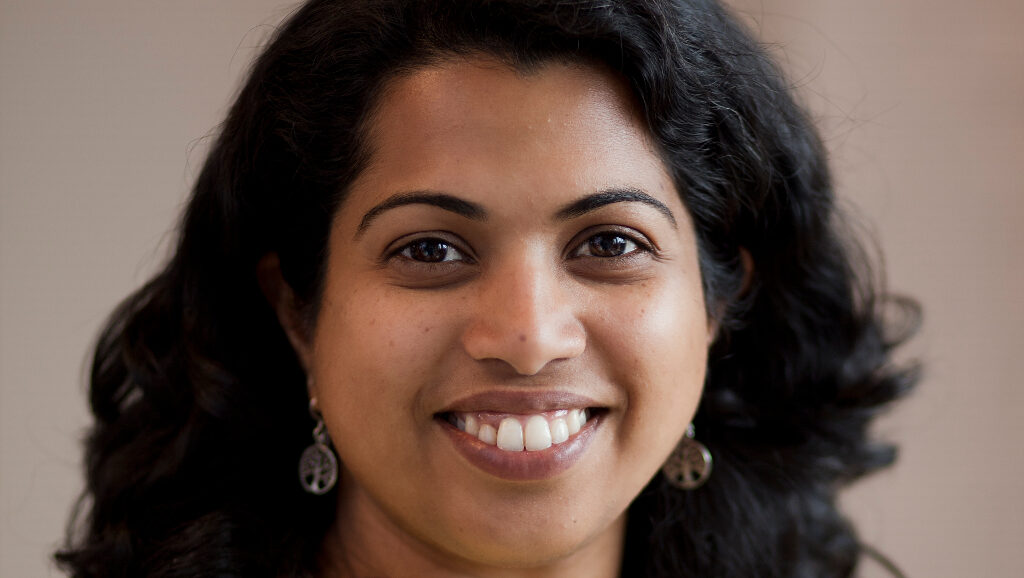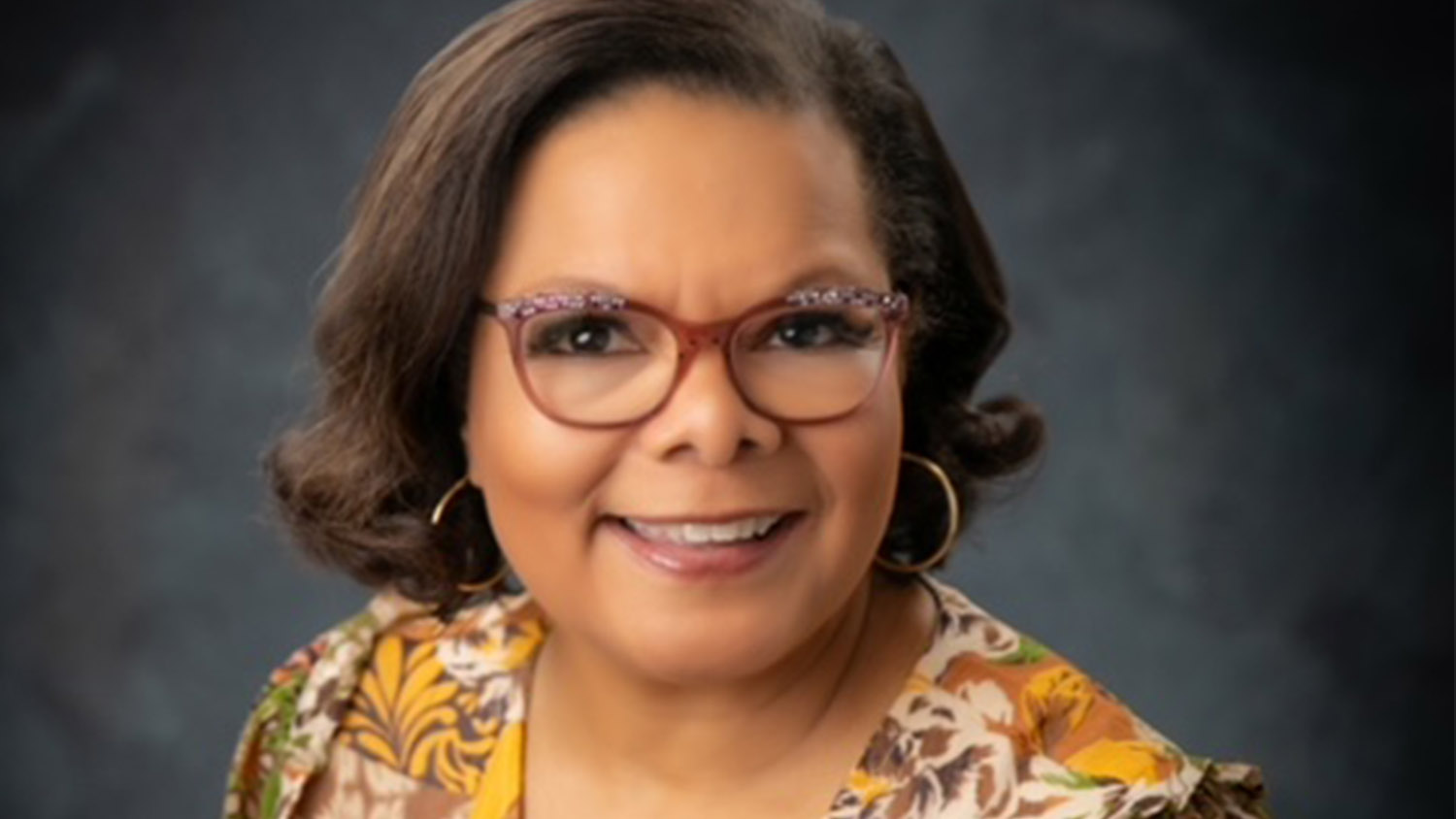In each edition of Pack IDEAs (Inclusion, Diversity, Equity, and Access), a newsletter released by the NC State College of Education Change Agent Task Force, we highlight faculty, students and alumni who have expertise and experiences that align with advancing diversity, equity, and inclusion (DEI) within the college. In becoming an anti-racist college community, we must deepen our commitment to creating and sustaining a healthy teaching and learning community that uplifts the humanity of all people, but especially Black, Indigenous and people of color, who due to structural inequities are marginalized in education and society. The spotlight feature offers a counternarrative that celebrates and showcases the brilliance of individuals within our college community.
Ajaya Francis Jonas
Director of Global Programs
What is your current role in the NC State College of Education?
I’m the Director of Global Programs in the College of Education. My main responsibilities are to develop education-specific study/intern abroad programs and partnerships. In an effort to increase the number of College of Education students participating in study abroad and/or engaging in global learning, I work closely with faculty to develop group study abroad programs and highlight any and all global opportunities available to our students at NC State and beyond. This includes managing the College of Education’s sponsorship of our students to participate in the NC State Global Training Initiative’s Developing Cultural Competence program.
Why is diversity, equity and inclusion in education important to you?
As an immigrant to the U.S. from India as a sixth grader, I had to figure out a new education system, a language that I thought I was familiar with, but felt indecipherable at times with its speed and slang, and new social and cultural norms. I’ve often been made to feel like a visitor, the other or invisible in a place I’ve called home for over 25 years. Diversity, equity and inclusion work in education allows students like me to feel seen, valued and included, so that we can fully participate in activities and feel free to be authentically ourselves.
Navigating this transition to the U.S. led me to want to be a resource for others navigating transitions in school, college and life. My parents and I went through this transition together but at different stages in life. On one hand, this made us a stronger unit, and I had an important role to play as we made life decisions together almost as equals. On the other hand, while going to college was an expectation, the specifics on how to access it wasn’t something they could help me with. It was my high school librarian who created a welcoming space for those who identified as new and immigrant to build community and access resources. She took us on college visits and tried to demystify the college experience. During my undergraduate studies, it was staff from the International Programs Center and the Office of Leadership and Service Learning that saw strengths in me I hadn’t yet recognized in myself and constantly nudged me to engage and seek out opportunities like study abroad, which felt financially out of reach.
As an international education professional, I’m passionate about making global experiences more accessible to underrepresented and underserved students in college and challenging ourselves to think about who we have in mind when we create these programs. The highlight of my career has been supporting first-generation college students’ access and participation in study abroad as well as co-leading a study abroad program just for first-generation college students, learning about race and cultural identity in the Dominican Republic. Our group out of Los Angeles was a walking, talking challenge to locals on what Americans look like, which made for interesting conversations and dialogue.
Are you currently conducting research around the area of diversity, equity and inclusion? If so, tell me a little about your research.
I’m not currently conducting research around this area but personally I’m always trying to learn more about immigrant and refugee transitions and lived experiences of marginalized communities in the countries/cultures that I’ve had the privilege of studying or living in. I’m also interested in first-generation immigrant and first-generation college student experiences, especially as it relates to studying and living abroad from access to belonging.
Are there community projects and/or initiatives you are involved in that are related to diversity, equity and inclusion? Tell me about those projects.
As a young immigrant to the U.S. in the mid-90s, I was mesmerized by the amount of books and other materials available for personal and educational use in public libraries and with almost 24/7 access in educational settings. This was not something I had much access to before moving here. As a personal project, I continue to support building book collections and educational resources for students and teachers, especially in rural and under resourced communities in India and Bolivia.
What do you hope to teach future educators and scholar-leaders about equity and inclusion in education?
I hope to teach future educators and scholar-leaders to listen to and learn from narratives and lived experiences other than their own, to break out of our comfort zones and bubbles we may find ourselves in everyday and interact with and engage across differences. I also believe in meeting the students where they are at. There is no one-size-fits-all program or learning experience that helps you have a nuanced and comprehensive perspective on equity and inclusion. It is an ongoing learning journey where we choose to engage in and reflect on experiences that challenge our perceptions and perspectives. While I don’t teach courses at NC State, I help facilitate programs with these ideas in mind.
For other students who are interested in learning more about social justice and anti-racist education, what are two resources you would recommend?
So many great resources have been mentioned in the past, so this is hard. I’m currently reading Suketu Mehta’s This Land Is Our Land: An Immigrant’s Manifesto, learning about migration past and present and Gayatri Sethi’s Unbelonging.
I encourage all of us to learn and think critically about the history we have learned or not learned in school and to actively seek out narratives that help us humanize and understand the people behind topics and issues.
Is there anything else you’d like to share with the College of Education community?
For my immigrant self, it wasn’t until after college that I recognized how little I knew and understood about Black and Indigenous history and experiences in the United States. For a fellow “diversity card” carrying member, I was still centering my experiences of marginalization and contributing to the erasure of others.
- Categories:



